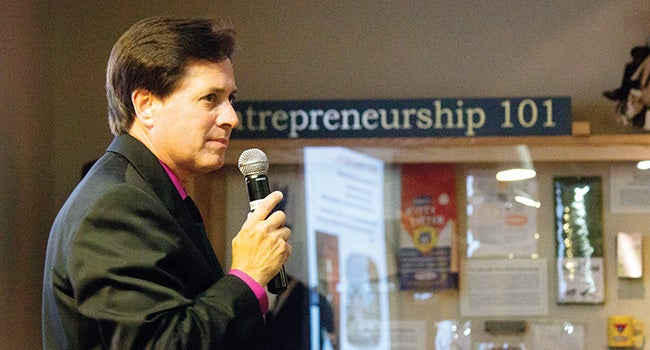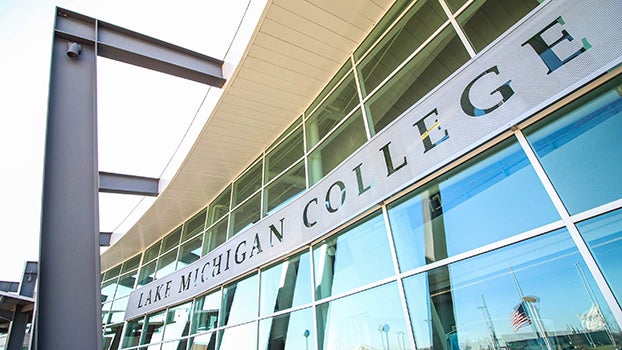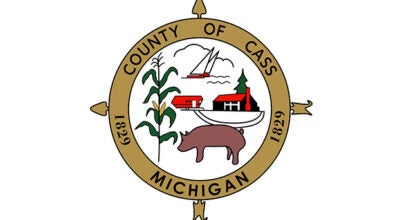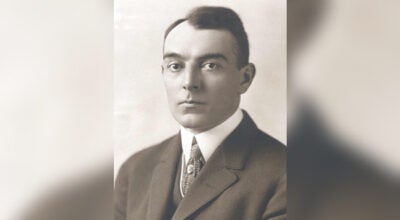Professor describes relationship between Indians, colonialists
Published 9:54 am Friday, October 6, 2017

- (Leader photo/TED YOAKUM)
Life, liberty and the pursuit of happiness.
These three inalienable rights, famously etched into parchment by Founding Father Thomas Jefferson in the Declaration of Independence, were at the heart of the American experiment when the 13 British colonies declared independence from Great Britain in 1776.
The concepts — which Jefferson adapted from philosopher John Locke’s natural rights of life, liberty and property — were meant to unify the English colonists, in place of a common American culture: as the lifestyles on windy coasts of New England were much different from those on the warm fields of the South.
However, these enlightenment values were not applied to every inhabitant of The New World. Besides the slaves who toiled under the service of many of the country’s founders, the nation’s first inhabitants — the many American Indian tribes that had lived on the lands for years — suffered during the colony’s expansion westward, according to Southwestern Michigan College instructor and author Jeff Dennis.
“Indians served as a perfect foil, perfect enemy [for colonists],” Dennis said. “They were nonwhite, they were not Christian, were not essential to a plantation society — and they held vast arable land — land that those Americans wanted.”
Dennis shared stories of the often blood-soaked conflicts between Native Americans and colonists during the formative years of the United States during his presentation Wednesday at the Dowagiac Area History Museum. The history professor’s talk, titled “The British and Indian War: American Indians During the Revolution,” was the latest in the museum’s fall lecture series, and drew 85 people to the basement of the downtown institution that evening.
Dennis, a graduate of Notre Dame University, has extensively studied the history of Native Americans and their relationship with the Europeans who settled in North America. His presentation Wednesday was adapted from part of his book, “Patriots and Indians: Shaping Identity in 18th Century South Carolina,” which he sold and autographed following his talk.
The professor said that the conflict between the two sides was focused on a single resource: land.
“That’s why people came to America — land,” Dennis said. “Land was status. Land was opportunity. Land was independence. You could become truly free, truly independent from anyone’s financial influence if you held enough land. You were beholden to no one.”
Naturally, the expansion of the English settlers into lands occupied by Native American tribes became a source of conflict, with American Indians seeing the colonists as interlopers on the lands they had occupied for generations, and colonists seeing Indians as “savages” standing in the way of their pursuit of property.
The conflict with the colonists led many Native Americans to side with Great Britain after the 13 colonies declared independence. While most consider the American Revolution to be a war centered mainly around battles between American patriots and the Red Coats, Americans led several campaigns against Native tribes during the conflict, including a war against members of the Cherokee nation around the Appalachian highlands in 1776, and an excursion organized by Gen. George Washington against the Iroquois around New York in 1779.
The campaign against the Cherokee was particularly brutal, with some historians describing it as “total war,” Dennis said.
“The armies advanced into Cherokee homelands, burning whole villages, destroying their crops, cutting down their orchards,” he said. “They killed not only men, but women and the elderly who could not flee quickly enough from the army.”
However, just as the American Revolution divided the colonists, so too did the conflict divide members of Native tribes.
Several nations, such as the Oneida in New York and Catawba in the Carolinas, sided with the colonists during the conflict, providing food, scouting and other aid to the patriots throughout the conflict. Their loyalty to the cause did not go unrewarded, as they maintained their sovereignty and reserves after the colonies defeated the British.
However, most other Native American peoples were not shown such respect by the now independent United States.
Although members of the Federalist Party believed that the country should “expand through honor,” i.e. paying Native American tribes for their lands and allowing them to become citizens, members of the Democratic-Republican party, led by Thomas Jefferson, believed in removal of these tribes. Jefferson’s side eventually won the debate — an ironic turn of events, given Jefferson’s love of Native American culture, Dennis said.





